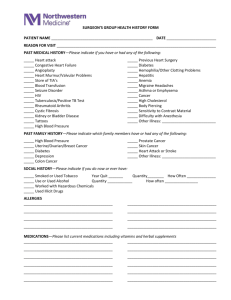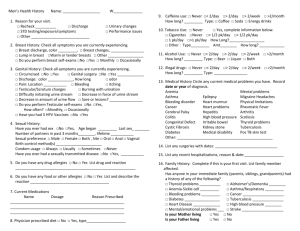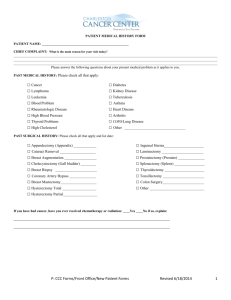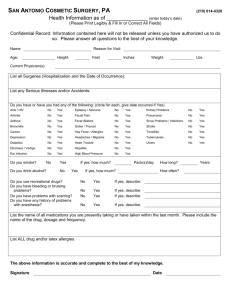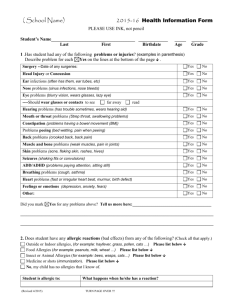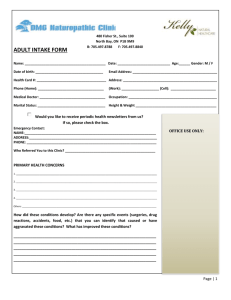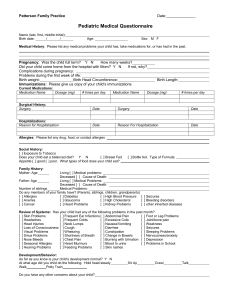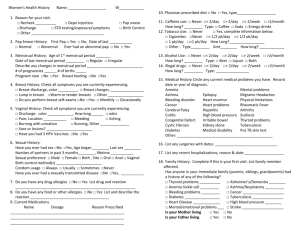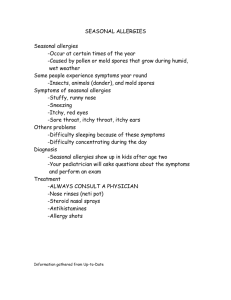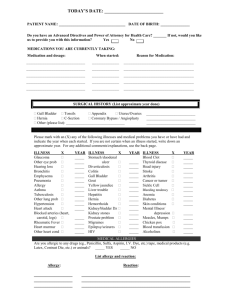Dear Employees, October is nearly upon us, and so we have for you
advertisement
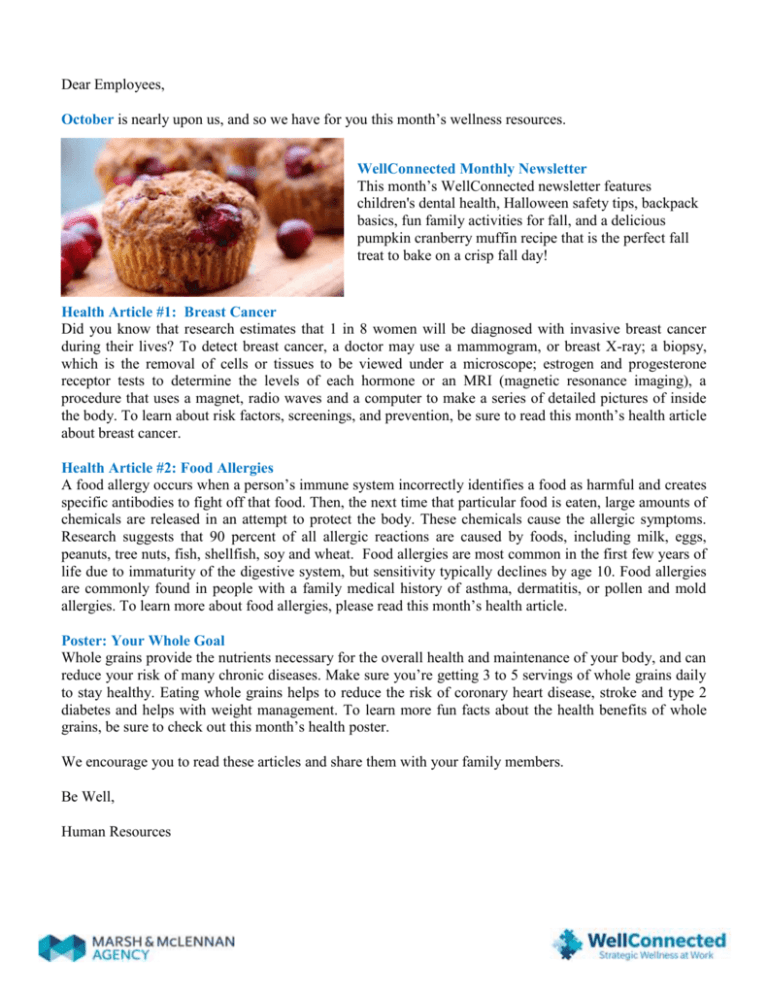
Dear Employees, October is nearly upon us, and so we have for you this month’s wellness resources. WellConnected Monthly Newsletter This month’s WellConnected newsletter features children's dental health, Halloween safety tips, backpack basics, fun family activities for fall, and a delicious pumpkin cranberry muffin recipe that is the perfect fall treat to bake on a crisp fall day! Health Article #1: Breast Cancer Did you know that research estimates that 1 in 8 women will be diagnosed with invasive breast cancer during their lives? To detect breast cancer, a doctor may use a mammogram, or breast X-ray; a biopsy, which is the removal of cells or tissues to be viewed under a microscope; estrogen and progesterone receptor tests to determine the levels of each hormone or an MRI (magnetic resonance imaging), a procedure that uses a magnet, radio waves and a computer to make a series of detailed pictures of inside the body. To learn about risk factors, screenings, and prevention, be sure to read this month’s health article about breast cancer. Health Article #2: Food Allergies A food allergy occurs when a person’s immune system incorrectly identifies a food as harmful and creates specific antibodies to fight off that food. Then, the next time that particular food is eaten, large amounts of chemicals are released in an attempt to protect the body. These chemicals cause the allergic symptoms. Research suggests that 90 percent of all allergic reactions are caused by foods, including milk, eggs, peanuts, tree nuts, fish, shellfish, soy and wheat. Food allergies are most common in the first few years of life due to immaturity of the digestive system, but sensitivity typically declines by age 10. Food allergies are commonly found in people with a family medical history of asthma, dermatitis, or pollen and mold allergies. To learn more about food allergies, please read this month’s health article. Poster: Your Whole Goal Whole grains provide the nutrients necessary for the overall health and maintenance of your body, and can reduce your risk of many chronic diseases. Make sure you’re getting 3 to 5 servings of whole grains daily to stay healthy. Eating whole grains helps to reduce the risk of coronary heart disease, stroke and type 2 diabetes and helps with weight management. To learn more fun facts about the health benefits of whole grains, be sure to check out this month’s health poster. We encourage you to read these articles and share them with your family members. Be Well, Human Resources
